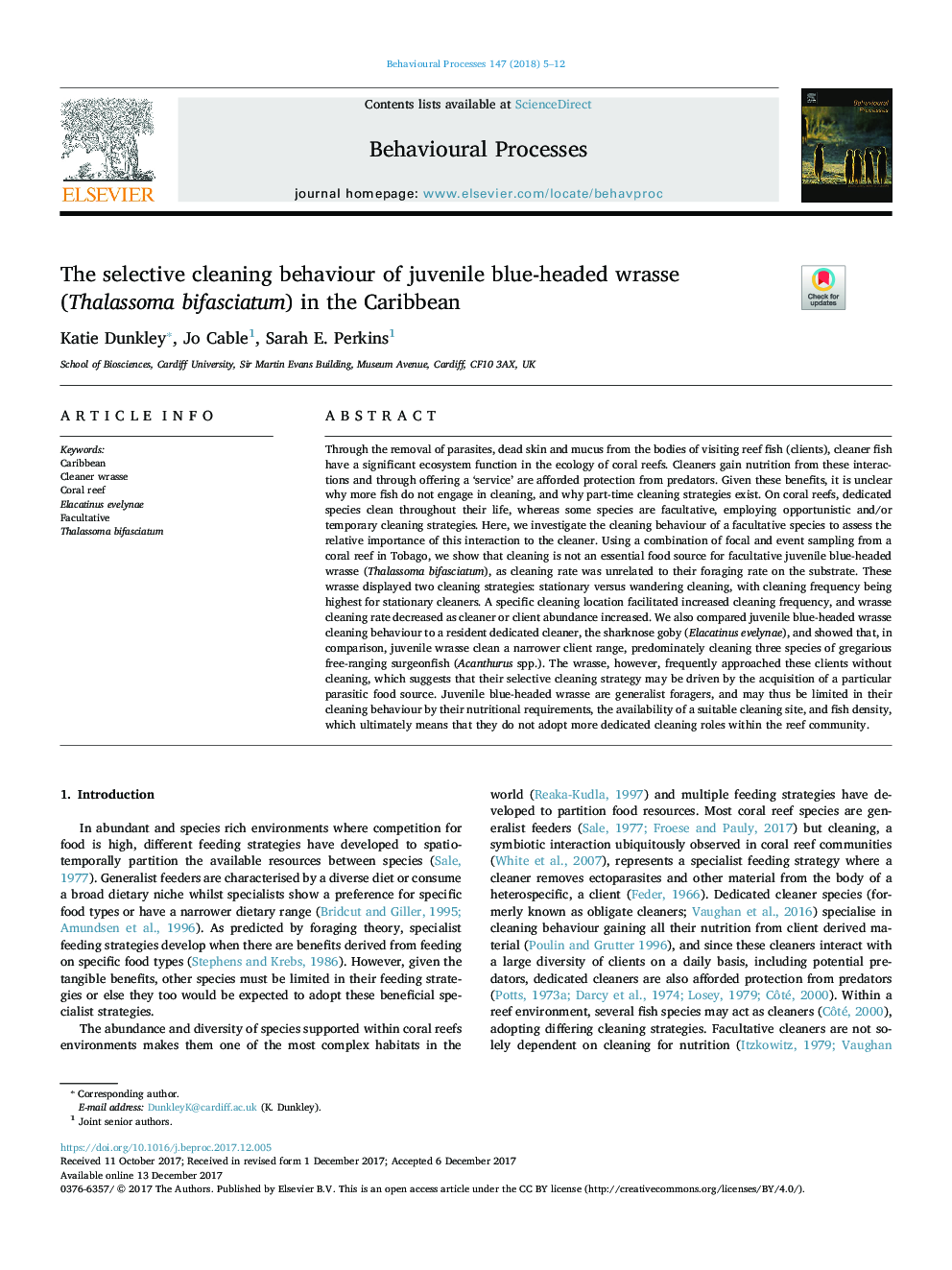| کد مقاله | کد نشریه | سال انتشار | مقاله انگلیسی | نسخه تمام متن |
|---|---|---|---|---|
| 8497015 | 1553134 | 2018 | 8 صفحه PDF | دانلود رایگان |
عنوان انگلیسی مقاله ISI
The selective cleaning behaviour of juvenile blue-headed wrasse (Thalassoma bifasciatum) in the Caribbean
دانلود مقاله + سفارش ترجمه
دانلود مقاله ISI انگلیسی
رایگان برای ایرانیان
موضوعات مرتبط
علوم زیستی و بیوفناوری
علوم کشاورزی و بیولوژیک
علوم دامی و جانورشناسی
پیش نمایش صفحه اول مقاله

چکیده انگلیسی
Through the removal of parasites, dead skin and mucus from the bodies of visiting reef fish (clients), cleaner fish have a significant ecosystem function in the ecology of coral reefs. Cleaners gain nutrition from these interactions and through offering a 'service' are afforded protection from predators. Given these benefits, it is unclear why more fish do not engage in cleaning, and why part-time cleaning strategies exist. On coral reefs, dedicated species clean throughout their life, whereas some species are facultative, employing opportunistic and/or temporary cleaning strategies. Here, we investigate the cleaning behaviour of a facultative species to assess the relative importance of this interaction to the cleaner. Using a combination of focal and event sampling from a coral reef in Tobago, we show that cleaning is not an essential food source for facultative juvenile blue-headed wrasse (Thalassoma bifasciatum), as cleaning rate was unrelated to their foraging rate on the substrate. These wrasse displayed two cleaning strategies: stationary versus wandering cleaning, with cleaning frequency being highest for stationary cleaners. A specific cleaning location facilitated increased cleaning frequency, and wrasse cleaning rate decreased as cleaner or client abundance increased. We also compared juvenile blue-headed wrasse cleaning behaviour to a resident dedicated cleaner, the sharknose goby (Elacatinus evelynae), and showed that, in comparison, juvenile wrasse clean a narrower client range, predominately cleaning three species of gregarious free-ranging surgeonfish (Acanthurus spp.). The wrasse, however, frequently approached these clients without cleaning, which suggests that their selective cleaning strategy may be driven by the acquisition of a particular parasitic food source. Juvenile blue-headed wrasse are generalist foragers, and may thus be limited in their cleaning behaviour by their nutritional requirements, the availability of a suitable cleaning site, and fish density, which ultimately means that they do not adopt more dedicated cleaning roles within the reef community.
ناشر
Database: Elsevier - ScienceDirect (ساینس دایرکت)
Journal: Behavioural Processes - Volume 147, February 2018, Pages 5-12
Journal: Behavioural Processes - Volume 147, February 2018, Pages 5-12
نویسندگان
Katie Dunkley, Jo Cable, Sarah E. Perkins,